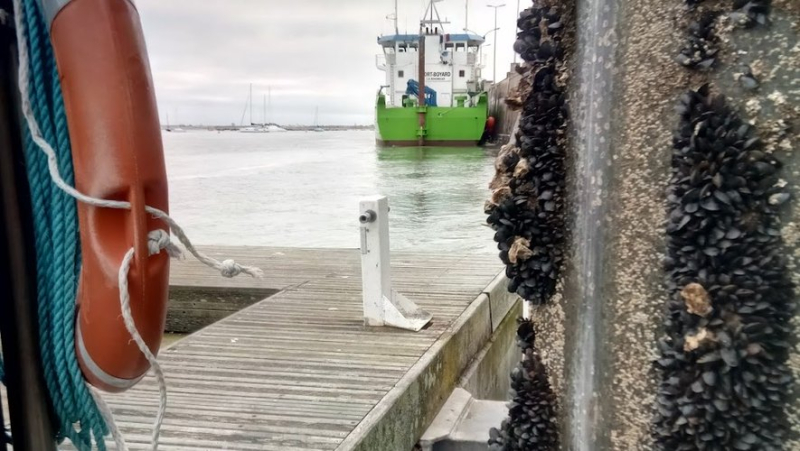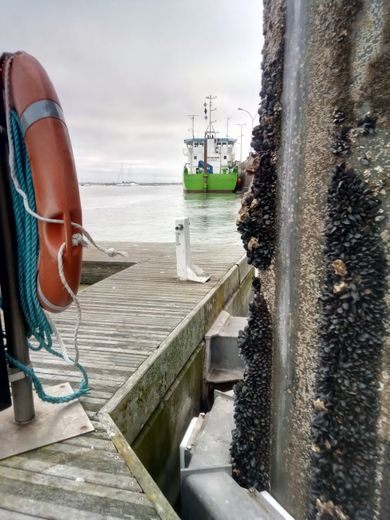Montpellier researchers show that ports play a role in the spread of benign mussel cancer


Les chercheurs ont constaté que les ports concentraient le cancer des moules. La raison : le biofouling. DR
Montpellier researchers have established that the transmissible cancer of these bivalves between them – without any danger for humans or for the consumption of mussels – is linked to maritime traffic and biofouling.
Seaports play the role of epidemiological centers in the global spread of a contagious cancer affecting mussels. This is the conclusion of the work of a research team carried out by scientists from the CNRS and the University of Montpellier and whose study was released last month.
But let's reassure ourselves right away: these mussels remain completely edible, this disease is in no way transmissible to humans and this does not lead to a significant mortality rate in humans either. bivalve.
"There are no concerns or impacts to human health. Indeed, it's a little scary to read "transmissible cancer", but it cannot jump to humans, we are only talking about cells, there is no risk and the prevalence is low" specifies Maurine Hammel, doctoral student at the University of Montpellier who led the study with Nicolas Bierne of the CNRS.
"This same cancer once emerged from a mold and then passed on and managed to spread. It is therefore transmissible: we don't really know how, the cells manage to escape from the mussel and, through the water, infect a neighboring mussel" continues the doctoral student.
And then there was this discovery which was surprising at the time: "a little by chance, we found the majority of cancers in the ports. From there, we are asked why more than elsewhere".
Two hypotheses are then formulated. First, the port environment, rather "closed" with a large population, a little polluted, "pollution could impact their immune system and the cancer cells would find a new host more easily. But we don’have no proof".
Especially since the observations focused on the pontoons, “open” areas, little polluted and with currents.
"We can draw a parallel with Covid"
"We switched to the second hypothesis: maritime boat traffic, because all these ports are connected to each other and there is transport of’ animal on the hulls of ships, what we call biofouling" says Maurine Hammel.
"We can draw a parallel with Covid: if we did not have air traffic, the virus would not be spread abroad. global scale as quickly.
Conclusion: "we must say that maritime traffic has an impact on things that we transport from one place to another , it would be time to continue making efforts to limit it" said the researcher, who now hopes to determine how cancer is transmitted and how this global spread happened.
I subscribe to read more




